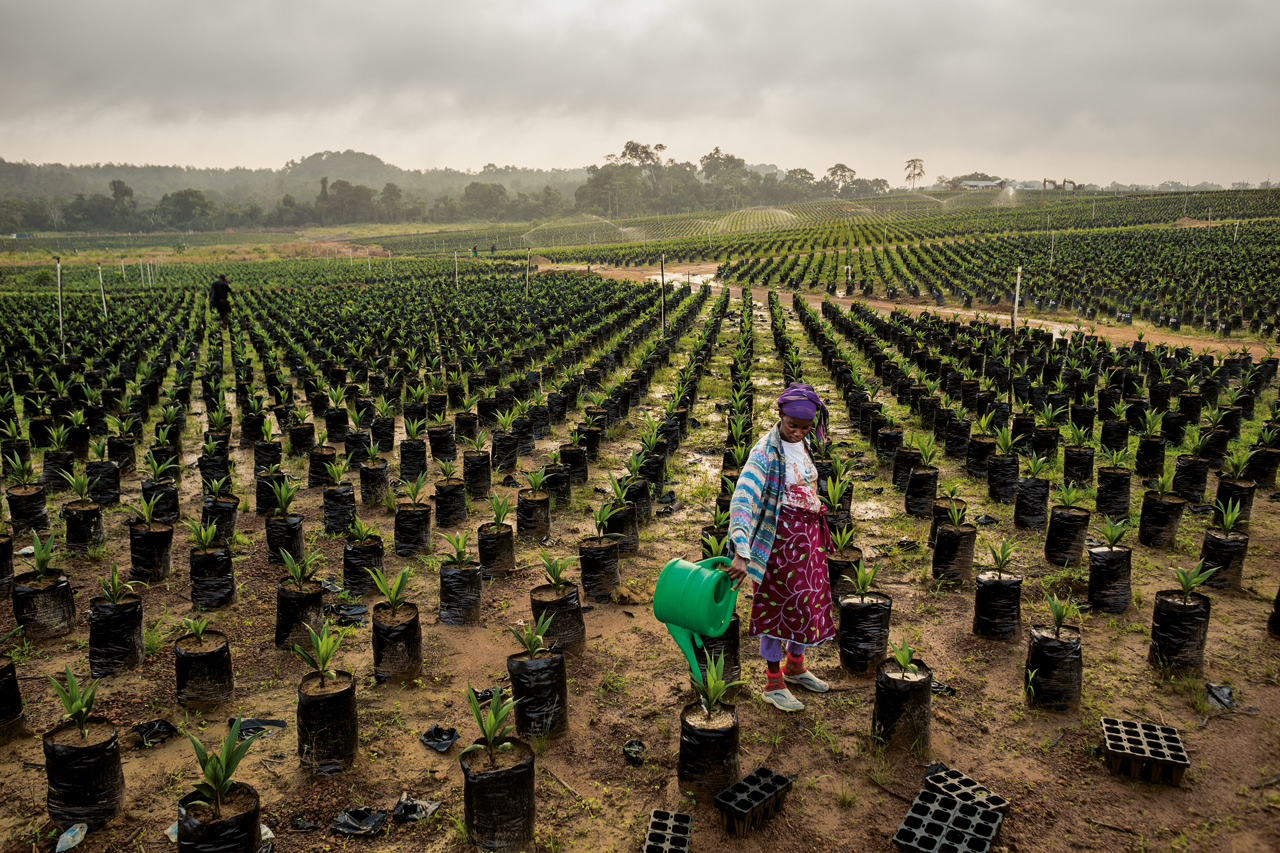Sovereign Carbon Initiative
"We need to bring more justice to global environmental governance, create the conditions for the economic valorization of natural capital and show solidarity in the face of Africa's imperative need for development.".
H.E.M. The President of the Gabonese Republic, Brice Clotaire Oligui Nguema
at the 6th Session of the United Nations Environment Assembly in Nairobi.
At a time when Africa, and Gabon, are directly impacted by climate change, the Republic of Gabon has created the Sovereign Carbon Initiative with the introduction of a Carbon Contribution.
This initiative is in keeping with the urgency of the situation, and with Gabon's commitment to reduce its greenhouse gas (GHG) emissions by 50% by 2030, in line with the objectives of the Paris Agreement, which aims to keep global warming below 1.5°C compared with pre-industrial levels.
Mandatory contribution
Based on the "Polluter Pays" principle applied in over 35 countries representing more than 70% of the world's GDP, this is a carbon contribution instituted by the Presidency of the Republic, to be paid by the main GHG emitters (the "Obligated"), including air and maritime sector entities based in the Republic of Gabon.


Voluntary contribution
All economic players operating in the Republic of Gabon are encouraged to join this initiative on a voluntary basis and contribute their expertise, know-how or financing.
Our mission
The mission of the Sovereign Carbon Initiative of the Gabonese Republic is to support Gabon's ecological and energy transition objectives in order to achieve the country's commitment to reduce its GHG emissions by 50% by 2030. The priority objectives of the carbon contribution are to
- Set up a Carbon Registry enabling Obligated and Voluntary Emitters to record their actual emissions and track their contribution and offsetting efforts,
- To finance and carry out impact programs for the benefit of the most vulnerable populations most exposed to the consequences of global warming. These programs will meet the Sustainable Development Goals as defined by the United Nations,
- Develop programs to strengthen Gabon's food sovereignty.
- Design and implement environmental and energy carbon avoidance and sequestration programs alongside specialized third-party investors. These will include reforestation projects, biodiversity preservation and restoration, and renewable energy production.
AGENDA
November 2024Phase 1
Signature of the Gabonese Carbon InitiativeDecember 2024Phase 2
Creation of the Gabonese Carbon Registry and raising awareness of its use among obligated entities.January 2025Phase 3
Official launch of Gabon's Sovereign Carbon InitiativeJanuary 2026Phase 4
Evolution of the mechanism towards an effort to balance contribution and compensation.
Phase 1: Agreement and signature of commitment to the Carbon Initiative
In November 2024, the Presidency of the Republic signed a mandate authorizing the consulting and training company Africa Carbon Solutions to implement the Carbon Initiative on behalf of the Gabonese Republic. From now on, the aviation and maritime sectors will have to report their emissions to the Gabonese Sovereign Carbon Registry. This initiative aims to offset the greenhouse gas emissions linked to their activities, and to support the ecological transition in these strategic sectors. The funds collected will be invested in projects to reduce the carbon footprint and preserve the environment, in line with Gabon's sustainable development objectives.
Phase 2: Creation of the Gabonese Sovereign Carbon Registry and raising awareness of its use among Obligated Parties
In December 2024, the launch of the Africa Sovereign Carbon Registry will give Obligees and Volunteers the opportunity to declare their greenhouse gas emissions, calculated according to recognized international standards, and track their contributions in complete transparency. This registry is a key tool for structuring climate commitments and strengthening the monitoring of emission reduction initiatives.
This will also be the time to raise awareness of its use among Obligees. Information and explanation sessions will be organized to answer their questions, clarify the emissions reporting process and reinforce their understanding of the tool.
Phase 3: Official launch of Gabon's Sovereign Carbon Initiative
In January 2025, the official launch of the Sovereign Carbon Registry will mark the beginning of a new era in the regulation of greenhouse gas emissions in Gabon. The registry will be set up to enable Obligated Parties to track and report their emissions in a rigorous and transparent manner, in line with recognized international standards.
Phase 4: Evolution of the mechanism towards a distribution effort between contribution and compensation.
In January 2026, the Gabonese carbon contribution mechanism will evolve to include an offsetting component, complementing the mandatory contribution introduced a year earlier. This marks a further step towards a more balanced approach, dividing the efforts of Obligated Parties between a contribution obligation and an offset obligation.
Obligated Parties will have to offset part of their emissions by acquiring carbon credits. These credits must come from certified projects, with priority given to those developed locally in Gabon, thus reinforcing the positive environmental impact at national level. This split between contribution and offsetting aims to mobilize more resources for local projects, while ensuring transparency and rigorous monitoring through the Sovereign Carbon Registry.

